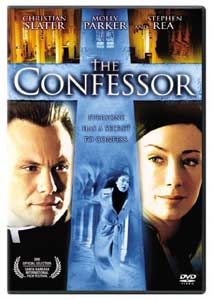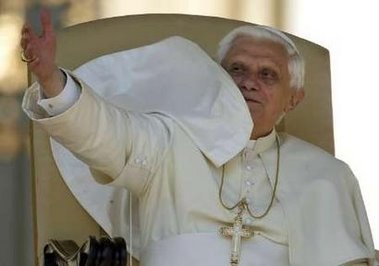In the Name of + Jesus. Amen.
All throughout Scripture, Old and New Testaments alike, God uses a metaphor. He speaks symbolically about his people, calling them sheep.
Some people are quick to read all sorts of things into this symbolism. How often do we hear devotions and sermons which speak of various qualities of sheep: they’re stupid, they’re slow, they’re nearsighted, they lack judgment, etc. But God is not using this symbolism to say any of these things about his beloved people. For indeed, we have been made above the animals, we’re made in God’s image. Jesus himself is called the Lamb of God, and far be it from us to claim our blessed Lord became stupid, slow, nearsighted, or lacking in judgment.
No, this metaphor of sheep has to do with vulnerability. Sheep face enemies much more powerful than they. Predators are constantly lurking to eat them. They survive by flocking, and by having shepherds protect them. And when Jesus took on human flesh, he did become vulnerable. He became subject to suffering, to temptation, and even to death.
And this, dear friends, is the point of the comparison. A sheep which gets lost, or wanders away, or thinks he doesn’t need the fellowship of the flock for safety is doomed. He is in danger. He is in harm’s way. A flock that has no shepherd to guide it to grassy pastures and cool waters and protect them from attacks will soon find itself in peril.
And so, what greater image of divine love and care, of nurture and protection, could there be than to picture us, the Church, as a flock of sheep, and our God himself as our “Shepherd and Overseer” of our souls, of the “good Shepherd” who lays down his life for the sheep, of the very Shepherd-God who seeks out the scattered and the lost to bring them to safety?
As our Old Testament lesson proclaims: “Indeed I myself will search for my sheep and seek them out.” God doesn’t move us like chess pieces with magical force. Rather he becomes incarnate, takes the shepherding staff in his human hand, and walks in our midst – protecting us from the predatory devil – and goes around the world drawing lost and scattered sheep into the safety of the fold.
He says: “I will bring them out from the peoples and gather them from the countries, and bring them to their own land.” The Lord gathers the lost and scattered, the sinful and fallen, the hopeless and mortal from every land and tribe and tongue, and he binds them into one people, protecting them from the evil one. There is safety in numbers, and our Good Shepherd gathers us and brings us home.
The Good Shepherd also feeds us! “I will feed them in good pasture… they shall lie down in a good fold and feed in rich pasture.” He provides our daily bread, and gives us the Passover Meal of the flesh and blood of the Lamb to eat. He fills the hungry with good things. He opens his hand and satisfies the desires of every living thing.
As the Psalmist writes, the Lord is our shepherd, and we lack nothing. He leads us beside still waters, living water, baptismal water – water that strengthens and nourishes the flock. He anoints us with oil, and our cups overflow – even as the Lord’s goodness and mercy follow us all the days of our lives.
And according to the shepherd-prophet Ezekiel in our Old Testament lesson, the Lord says: “I will seek what was lost and bring back what was driven away, bind up the broken and strengthen what was sick; but I will destroy the fat and the strong, and feed them in judgment.”
Part of the pastoral ministry of our Good Shepherd is to go out and seek the lost, the wandering, those who can be led back to the fold. But to those who are fat and strong, who rely on their own strength and material well-being, who feel no need to join the rest of the flock – they will be slaughtered and used for food. There is both evangelism and judgment in this passage.
For Jesus is the ultimate pastor, the Good Shepherd, the one who truly lays down his life for the sheep. He places himself physically between the predatory devil and the vulnerable flock. He stands at the gate of the sheepfold armed with his shepherd’s crook, ready to crush the serpent’s head, or repel the wolf, or even to beat back the roaring lion who lurks about seeking whom he may devour.
Jesus is the owner of all the sheep, and thus treats every sheep as his property. He does not die merely for a few hand-selected sheep, but rather is himself the Lamb of God who takes away the sin of the entire world, of all sheep – even those who refuse the gift of what he offers.
The Good Shepherd is unlike the hired hand, who is only there to earn a wage, who at the first sign of trouble, cuts and runs. For as our Gospel text proclaims, the hireling “sees the wolf coming and leaves the sheep and flees; and the wolf catches the sheep and scatters them.” Our Lord tells us that the hireling doesn’t care about the sheep, and thus, he is not willing to lay down his life for them. But Jesus is no hireling, but is the very Lamb who is slain for all the sins of the sheep. He is the one of whom he himself speaks when he says: “greater love has no-one than this, than to lay down his life for his friends.”
The Good Shepherd knows his sheep by name, just as surely as he knows the Father by name. And as Ezekiel prophecies, the Good Shepherd doesn’t merely lay down his life for this flock or that, but sees the entire world as his flock. He spreads his Gospel around the globe to draw in all sheep, to offer the safety of the sheepfold to everyone – even though there will be those who are fat and strong in their own self-image and imagination, who see no need for a Shepherd – and those will be destroyed.
Dear Christian friends, we are not left to our own devices. We aren’t simply thrown out to fend for ourselves. Jesus himself pastors us, shepherds us, herds us into the safety of the churchly sheepfold. He places his own body in harm’s way, even to the point of death on the cross, in order to protect his beloved sheep. When we wander, he beckons us. When we lose our way, he is there to guide us back on the path. When we are injured, he binds up our wounds. When we hunger, he feeds us in green pastures. When we thirst, he gives us to drink of the still waters.
We never have to worry about whether our blessed Lord will flee from us. For he is no hireling. Jesus never received a paycheck for his shepherding duties, but in fact accepted the wages of our sin, which is death. Jesus never accepted wealth (though it was offered to him by the devil), but was rather himself sold for thirty pieces. Jesus is not the hired hand, but rather the owner of divine hands which bear the imprints of nails, hands which bless us, hands that shepherd us, hands that protect us, feed us, water us, and give us everlasting life.
In the Name of the Father and of the + Son and of the Holy Spirit. Amen.





